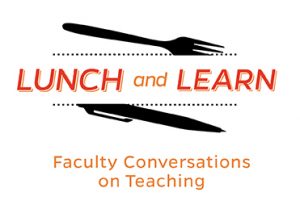[Guest post by Anne-Elizabeth Brodsky, Senior Lecturer, Expository Writing, Johns Hopkins University]
Usually teaching offers us a built-in apparatus. There’s a classroom, regular meeting times, a syllabus, an end of the semester in sight.
But advising grad students on their dissertations, or supervising them as their PI, is an entirely different sort of teaching. The familiar structures have evaporated, the final product is hard to envision, and what’s at stake is not a grade but a career.
As faculty we do our best to get it right, knowing that each grad student and each research project differs wildly.
But it’s tricky, as Drew Daniel (JHU English department) reflects in an August 2018 blog post:
“Graduate advising is intimate and intense. . . . It is a partnership but it is also structurally,  fundamentally unequal. One of you is learning how to do something; one of you is advising the other on how to do that thing based on prior experience and presumed expertise. . . . The advisor must help the grad student bring something new into the world which is the student’s own and which the advisor does not themselves already completely understand.”
fundamentally unequal. One of you is learning how to do something; one of you is advising the other on how to do that thing based on prior experience and presumed expertise. . . . The advisor must help the grad student bring something new into the world which is the student’s own and which the advisor does not themselves already completely understand.”
Given that the road ahead is unpredictable, the initial steps we take as faculty become all the more important. It’s crucial that we set up clear terms and reliable mechanisms that will buttress our students, come what may.
What Works
Consider, for example, creating an advising statement to share with prospective advisees. This can be a tangible, transparent way to set clear and mutual expectations in the advisor-advisee relationship. Read more about advising statements in the Chronicle here (October 2018), where Moin Syed (in psychology at the University of Minnesota) shares his advising statement as a google doc you can adapt as your own.
Leonard Cassuto, in the English department at Fordham, explains here (in the Chronicle December 2018) how he sets up dissertation writing groups. This approach structures not only the faculty-advisee relationship but also collegial relationships among grad students at different levels in the program.
Along similar lines, but in the context of lab sciences, Allison Antes (from the Center for Research and Clinical Ethics at Washington University School of Medicine) offers six key steps to strong faculty advising in a November 2018 Nature article. For instance:
Task one: put recurring one-on-one meetings with the members of your group on your calendar. Set up a notebook or spreadsheet and jot down anything you should bring up during these meetings. Set an alert for ten minutes before the appointment to decide how to approach the meeting. Does the team member need encouragement? Career guidance? Feedback on their project and direction for next steps? Are they behind on deadlines or lacking confidence?
Task two: invite people to share both complaints and highlights. Several exemplary scientists explicitly require their trainees to relate a concern or struggle at some point in one-on-one meetings. They want to help people to be comfortable enough to bring problems and mistakes to light, and so address issues early, while they are manageable.
 Finally, in March 2019, four professors from across disciplines offer “Three research-based lessons to improve your mentoring:”
Finally, in March 2019, four professors from across disciplines offer “Three research-based lessons to improve your mentoring:”
- Approach the power dynamic between mentor and mentee by invoking relevant research. Aspects of mentoring line up with aspects of parenting; to say this is not to infantilize students but rather to acknowledge the power difference as well as (often) the generational difference—and to avoid reinventing the wheel. Research shows the benefits of “authoritativeness, which is defined by both high expectations and high attentiveness; offering a safe haven in times of distress; and fostering a secure base to promote exploration.”
- Communicate your confidence in students’ abilities and potential. Again, from the research: “if students think their professors believe that only a few special people have intellectual potential, it can harm their sense of belonging and their performance.”
- Model a growth mindset, and “help mentees embrace failure as growth.” One of the authors, Jay J. Van Bavel, shares his unofficial bio alongside his formal one. Some faculty circulate failure CVs.
Where Hopkins Fits In
Here at Hopkins there has been significant conversation around how best to mentor graduate students, particularly since the publication of the National Academies of Science report on sexual and gender harassment in the sciences. In October of 2018, at a Women Faculty Forum event concerning the NAS report, participants (faculty, students, and staff) generated suggestions for how JHU could implement NAS’s recommendation #5: “Diffuse the hierarchical and dependent relationship between trainees and faculty.” You can read notes from that conversation here.
In November 2018, a faculty coffee hour focused solely on the faculty-trainee relationship at Hopkins produced these suggestions.
Meanwhile, there is a new PhD Student Advisory Committee, convened by Vice Provost for Graduate and Professional Education Nancy Kass. Mentorship, inclusivity, professional development, and grad student well-being are among the key topics discussed. From the Hub: “We get these amazing students, and we want them to be productive, and happy, and feel good about what they’re doing, and then be prepared to do really wonderful things afterwards,” Kass says.
As a result of this work, the Doctor of Philosophy Board just passed two new policies: The first requires PhD students and their advisors to have annual conversations about not only research progress but also professional development goals. The second requires each PhD-granting school to distribute our new mentoring guidance and to put in place at least two “supports”—such as workshops, training, mentoring mavens, mentoring awards, and so on.
Finally, Vice Provost Kass also assembled a university-wide PhD Program Directors Retreat in early May. The focus was on PhD professional development and preparedness for non-academic careers. Farouk Dey, Vice Provost for Integrative Learning and Life Design, was the keynote speaker. His overall message to faculty PhD program directors: “Try not to ask [students] ‘What do you want to do?’ Instead ask, ‘What has inspired you lately?’ ‘What action can you take to turn that inspiration into reality and how can I help you with that?’”
Anne-Elizabeth Brodsky, Senior Lecturer
Expository Writing, Johns Hopkins University
Anne-Elizabeth M. Brodsky has taught in the Expository Writing Program since 2007. In addition to teaching “Introduction to Expository Writing,” she has also taught courses on friendship, public education, and race in American literature. A former member of the JHU Diversity Leadership Council, Anne-Elizabeth now serves as co-chair of the Women Faculty Forum at Homewood.

